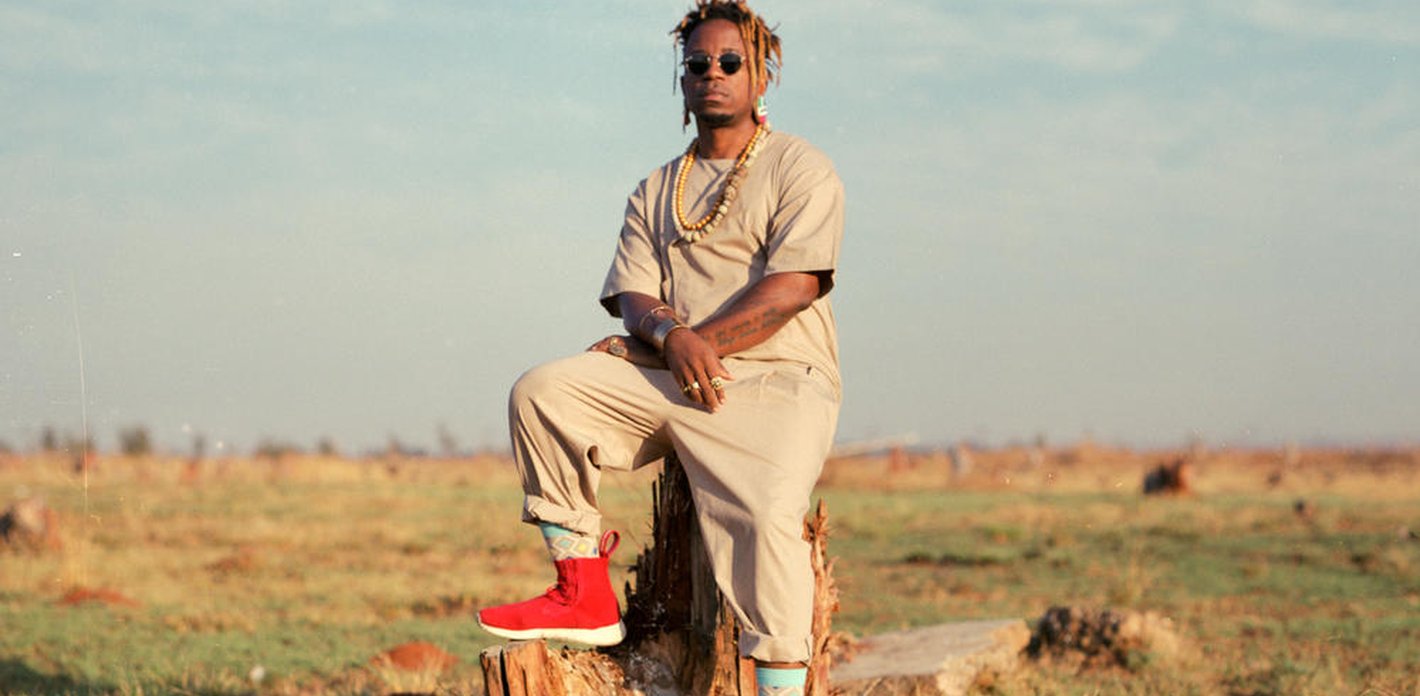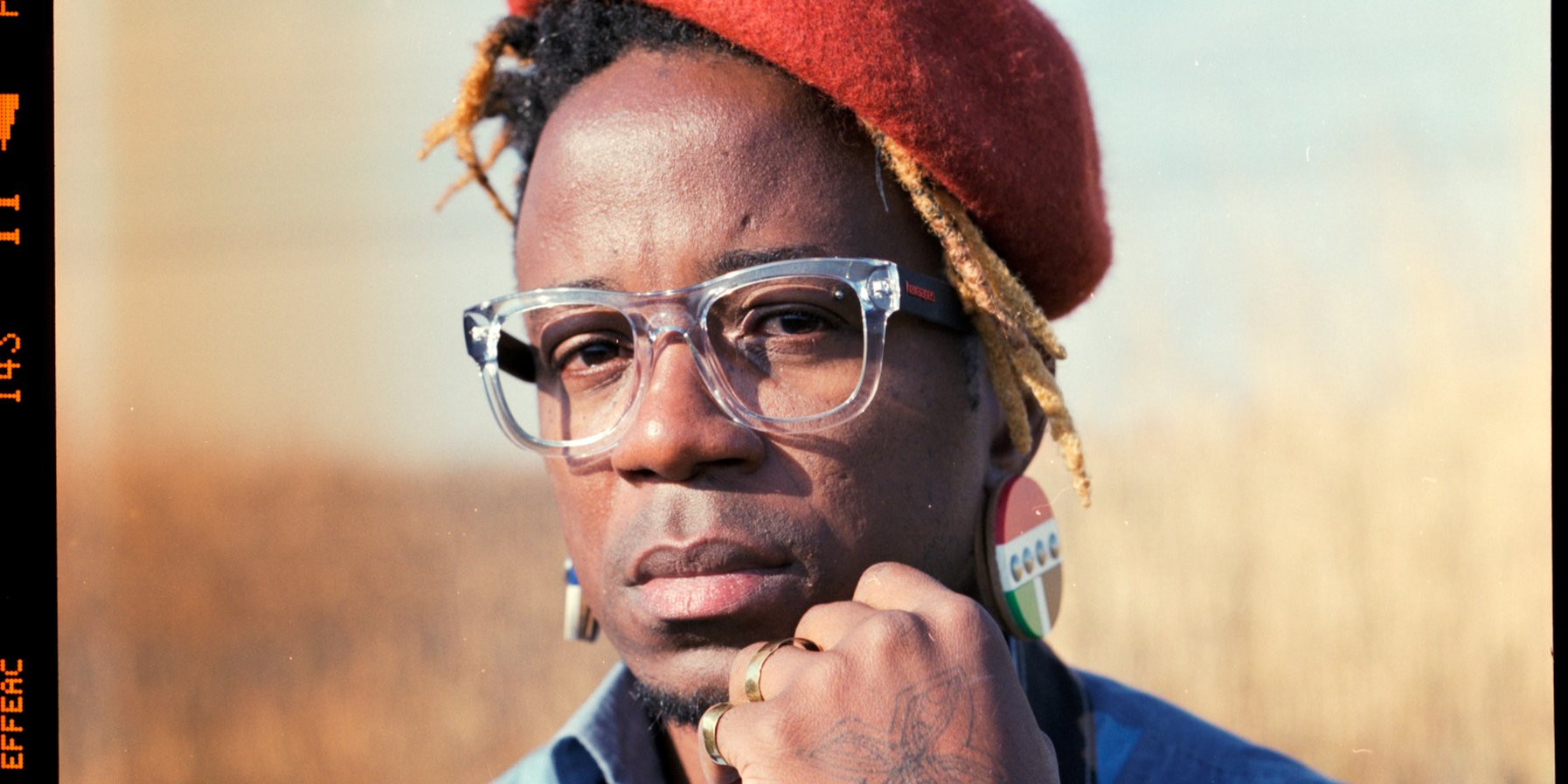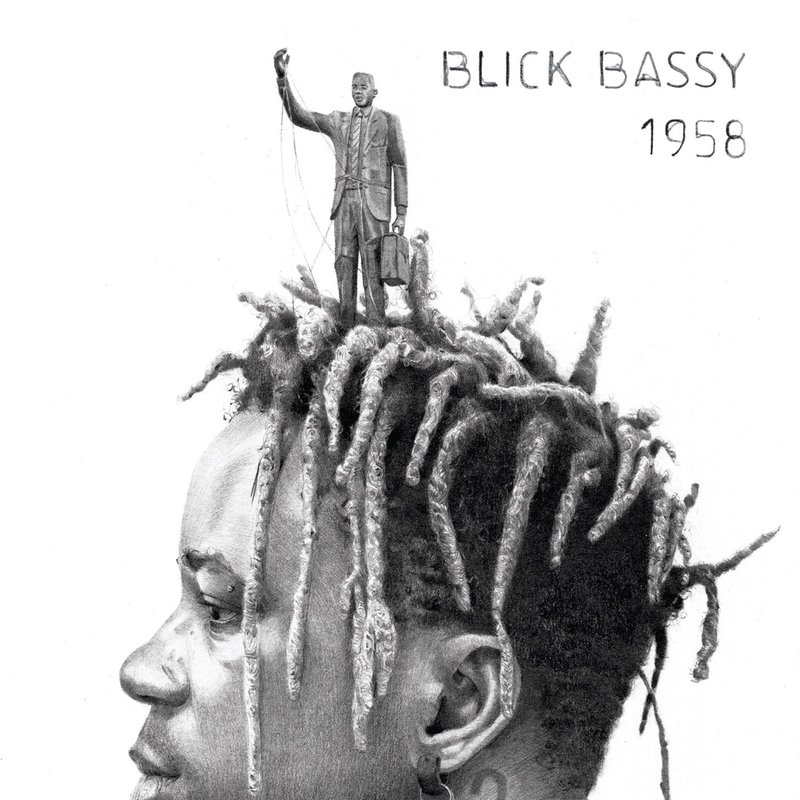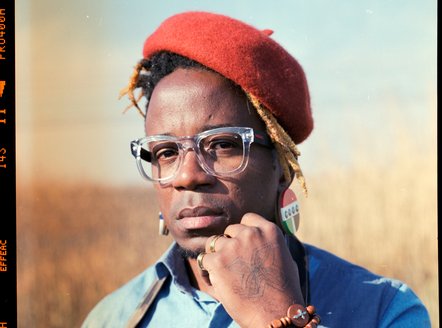01
Ihr Album »1958« ist eine Hommage an den kamerunischen Unabhängigkeitskämpfer Ruben Um Nyobé, der in jenem Jahr von französischen Kolonialtruppen erschossen wurde. Was war Ihre Motivation für das Album?
Your album »1958« is a homage to Cameroonian freedom fighter Ruben Um Nyobé, who was shot that year by French colonial troops. What motivated you to make the album?
If you look at what’s happening in our country today, you notice that we missed out on something important, namely getting in touch with our history and our values. In Cameroon and in other African countries, nations are built on foreign structures that have nothing to do with the local eco-system. These structures were imposed on us from outside. They determine our economic, educational, political and cultural models, but they have nothing to do with our own needs. It seemed an obvious idea to look for inspiration from the people who gave their life for our country’s independence.
Blick Bassy: Ngwa
02
Kann Musik politische Veränderungen vorantreiben?
Can music expedite political change?
Um Nyobe said that everything is political, and politics affects every area of life. That’s why we vote. But what happens after the election? That doesn’t mean that our responsibility as citizens is at an end. I believe that every action, and every failure to act, is political, as both have an influence on the world we live in.
03
Ihre Texte handeln von ernsten Themen, von Unterdrückung, Bevormundung, Eitelkeit, doch die Musik dazu klingt ganz sanft. Ein Widerspruch?
Your texts deal with serious issues such as repression and vanity, but the music itself sounds quite gentle. Isn’t that a contradiction?
Not at all: I think it’s the best way to approach these issues if you want people to hear what you’re saying. If somebody is annoyed or angry and starts to scream and shout, the other person won’t listen to him. You need to let the anger pass, then you can start a peaceful dialogue.

04
Sie singen hauptsächlich auf Bassa, einer der unzähligen Sprachen Kameruns. Was hat Sie dazu bewogen?
You sing mainly in Bassa, one of Cameroon’s countless languages. What prompted your choice of language?
The Cameroonians’ native languages continue to be stigmatised in comparison with the colonial languages English and French; they are regarded as dialects and pushed right to the back of the cupboard together with all the traditions that belong to them. I believe it’s important to take our native languages as a starting point for the rebuilding of our continent.
05
Sie haben in Paris gelebt und sind dann in ein kleines Dörfchen nahe Calais gezogen. Wieso das?
You lived in Paris and then moved to a little village near Calais. Can I ask why?
Well, I’m a man of the country. I need to be in touch with nature, to observe it and listen to it in order to relax and be creative. That’s why I left Paris. First I lived in a little village in the north, now I’m in the south-west, in another village. When I retire, I can see myself returning to Cameroon, to Mintaba, the village where I grew up. I plan to create a new little world there, a world as I imagine it, where Man and every other living creature live together as equals.
Interview: Anastasia Pässler, last amended: 24.03.2020
About the concert
- Elbphilharmonie Kleiner SaalPast Concert








